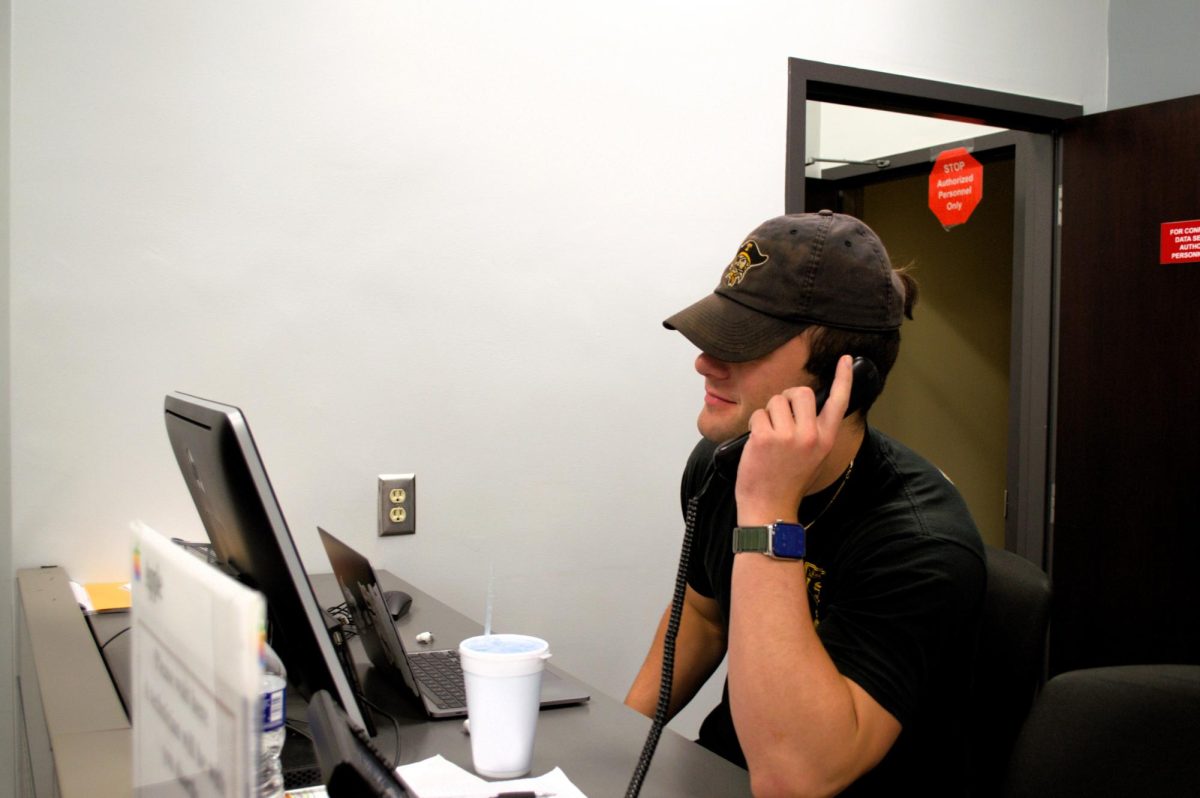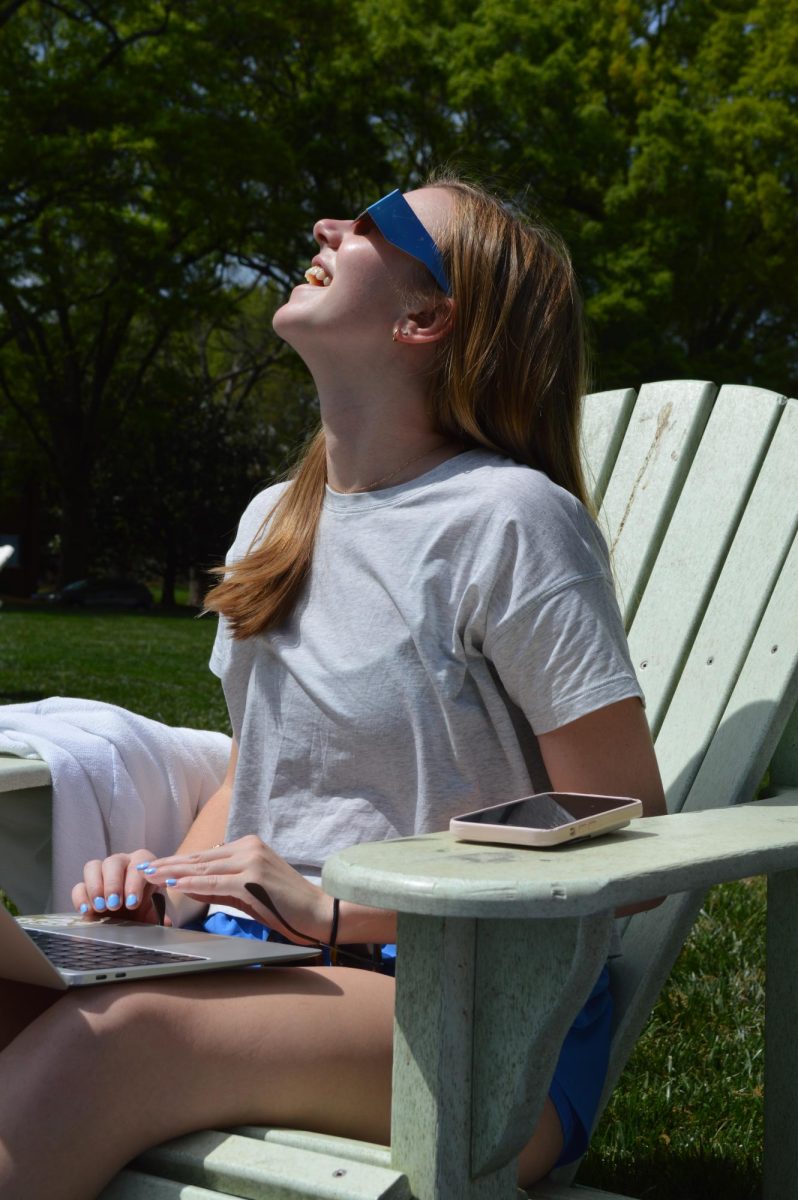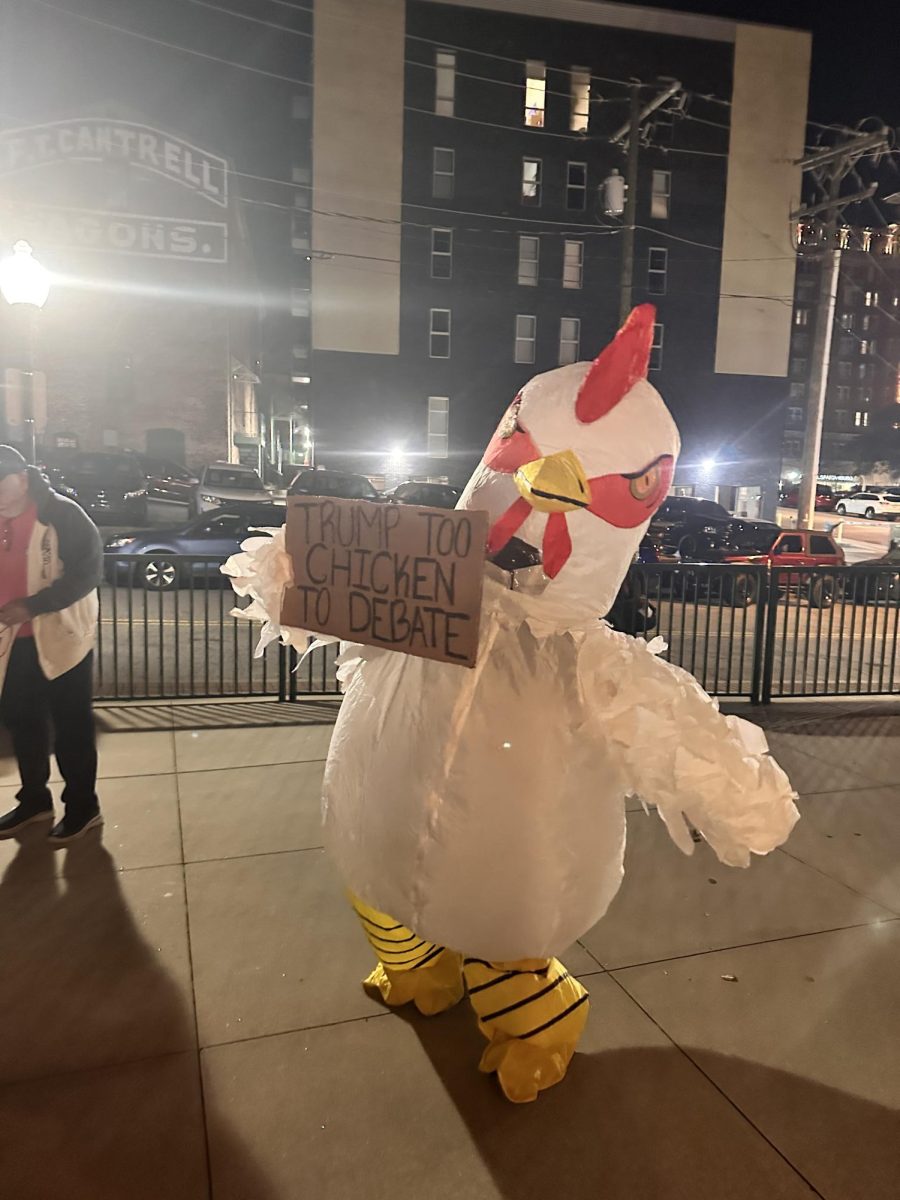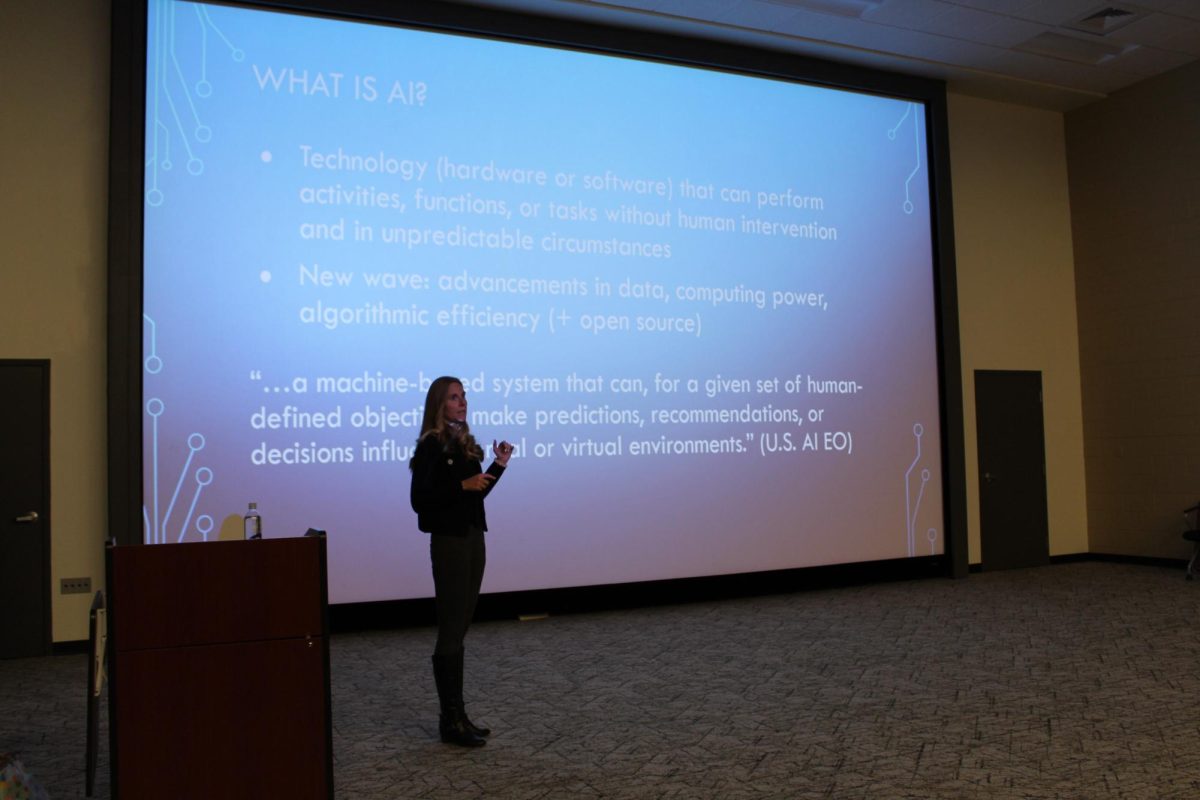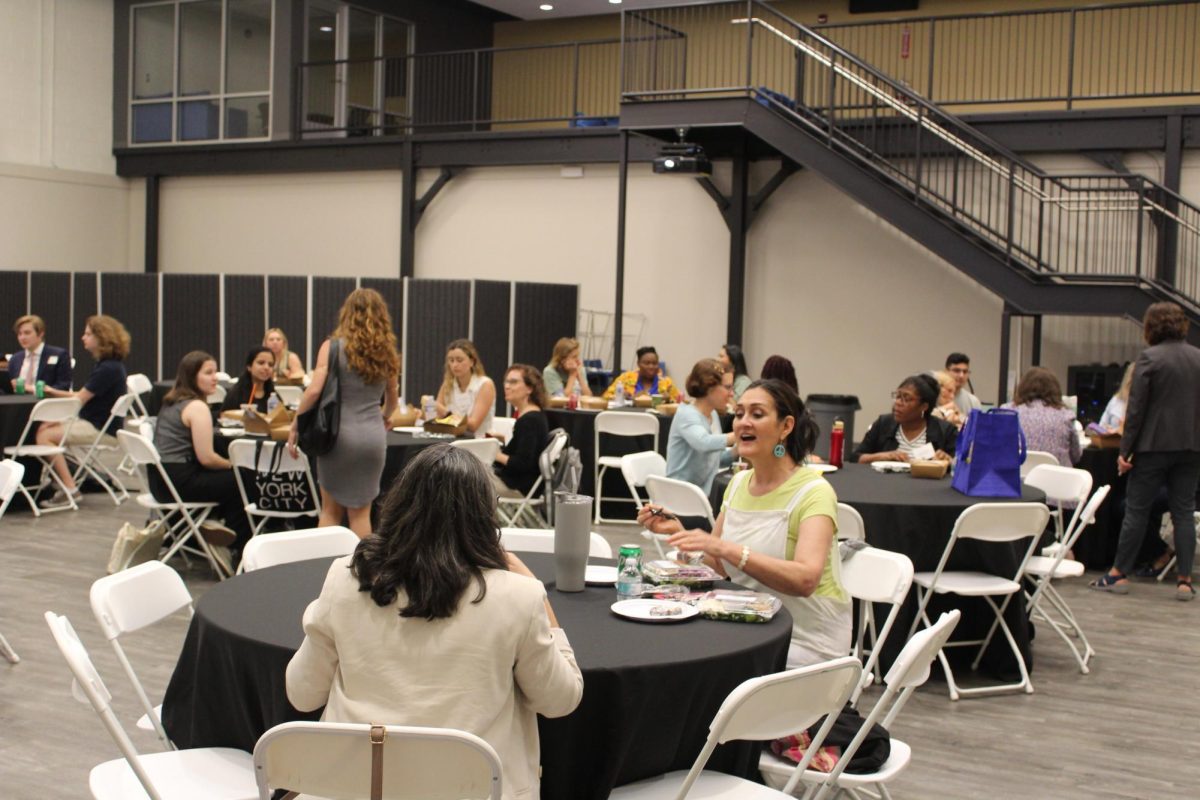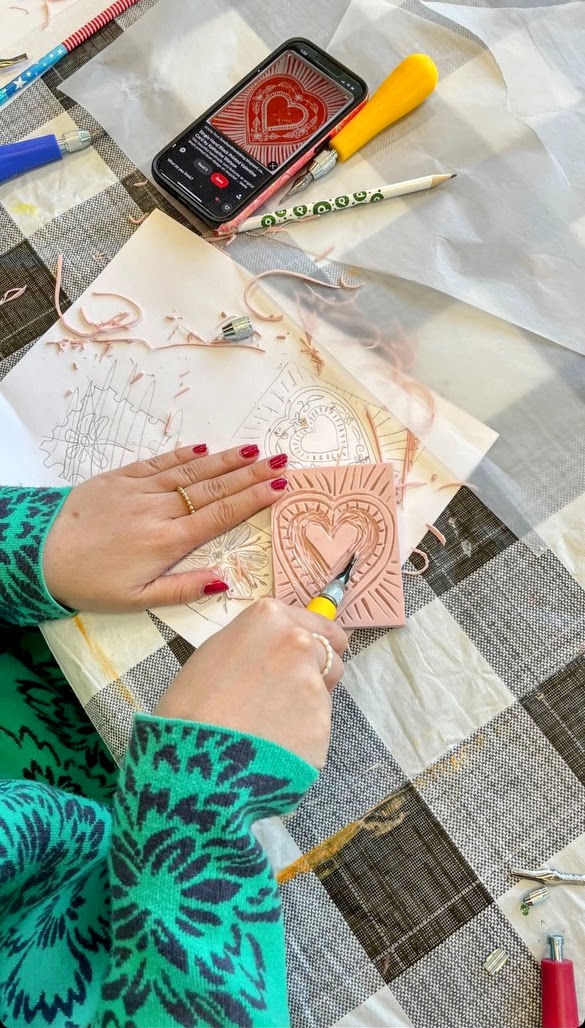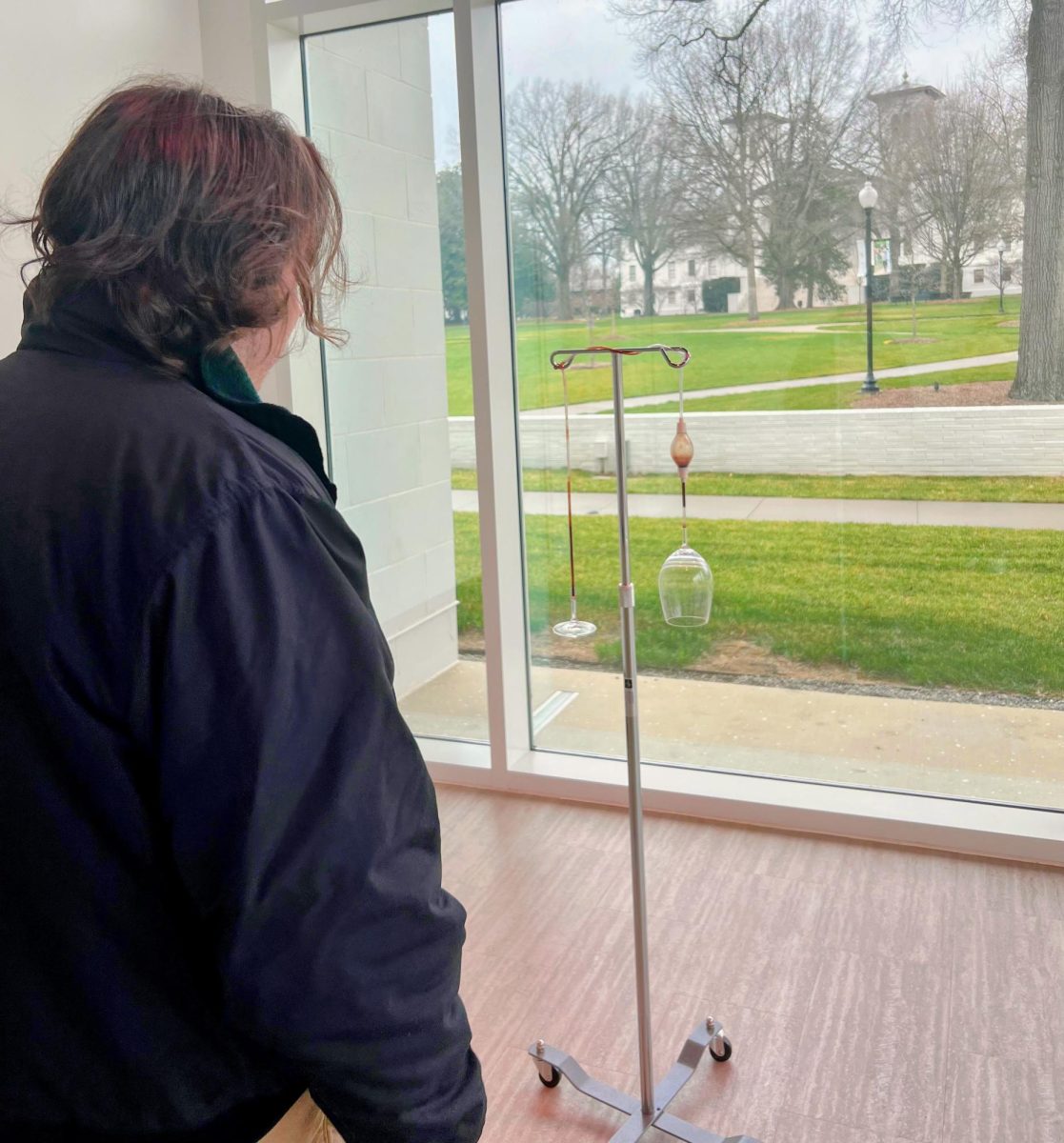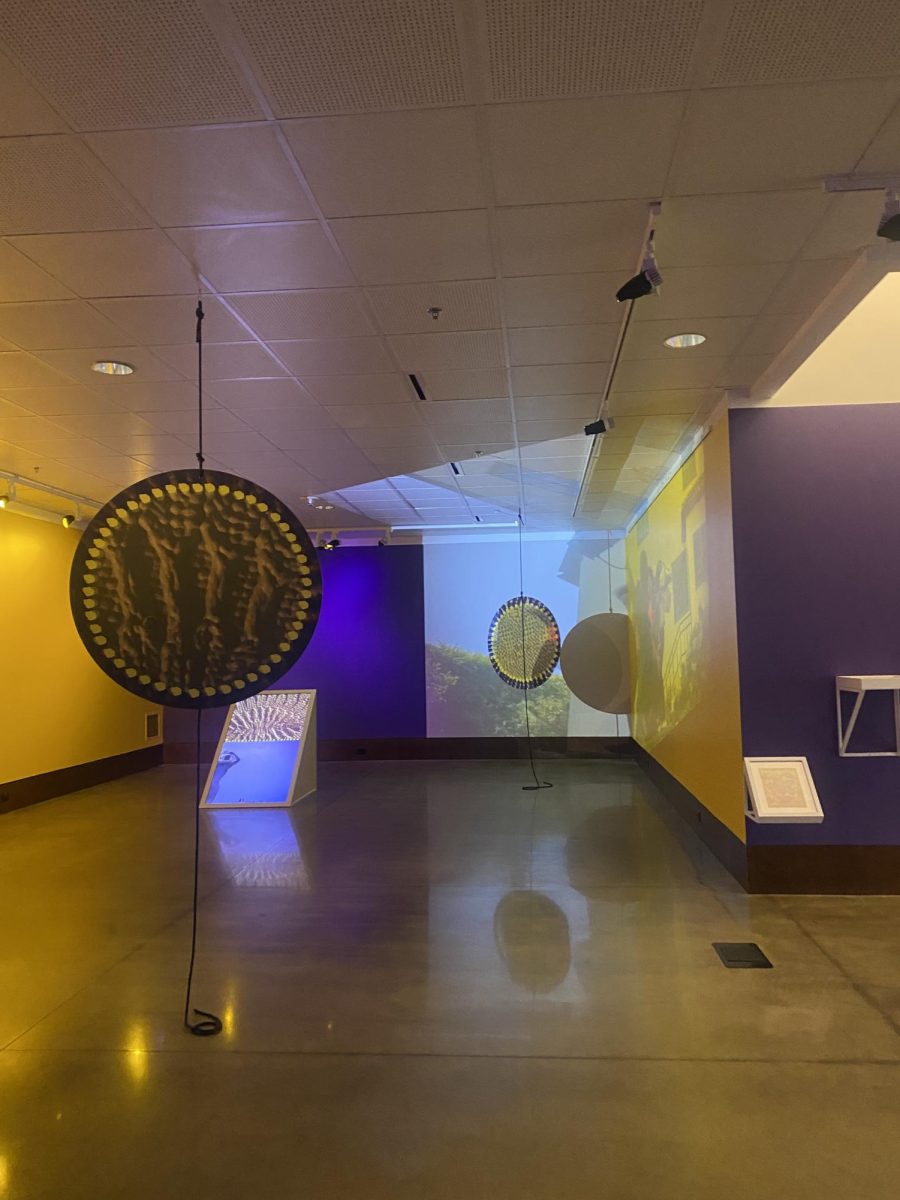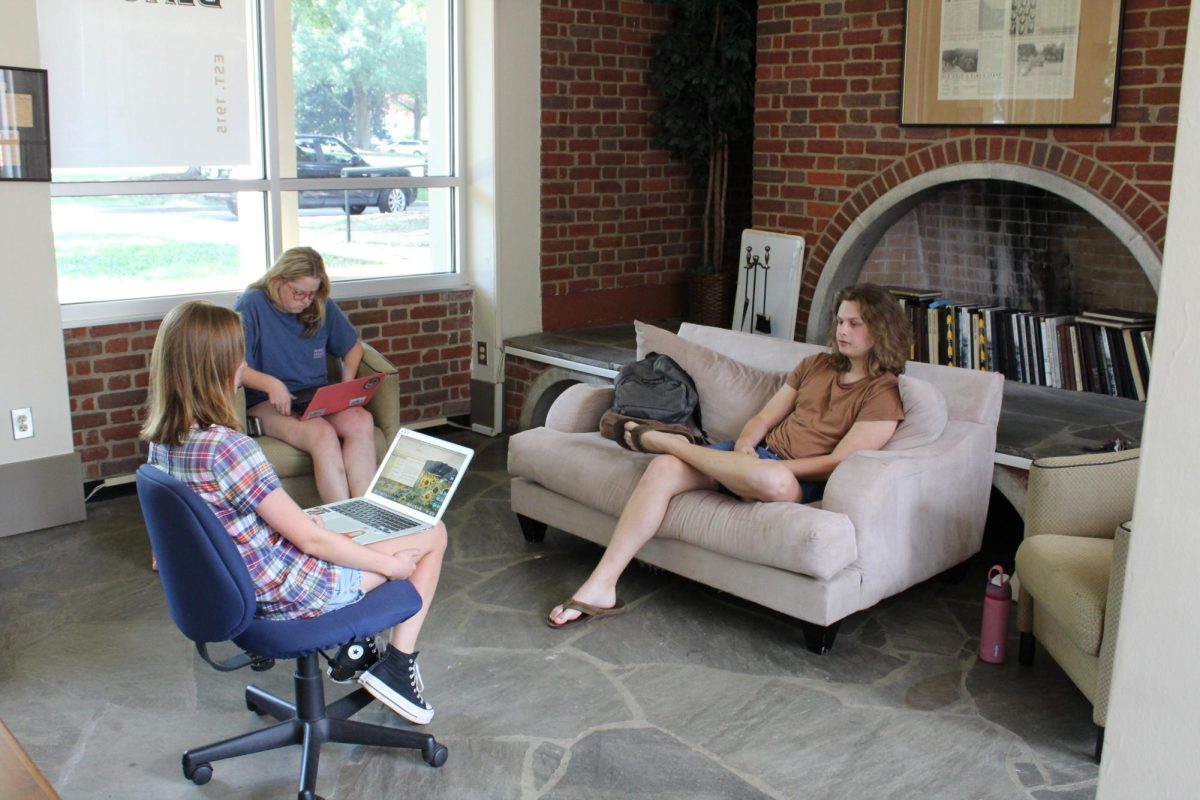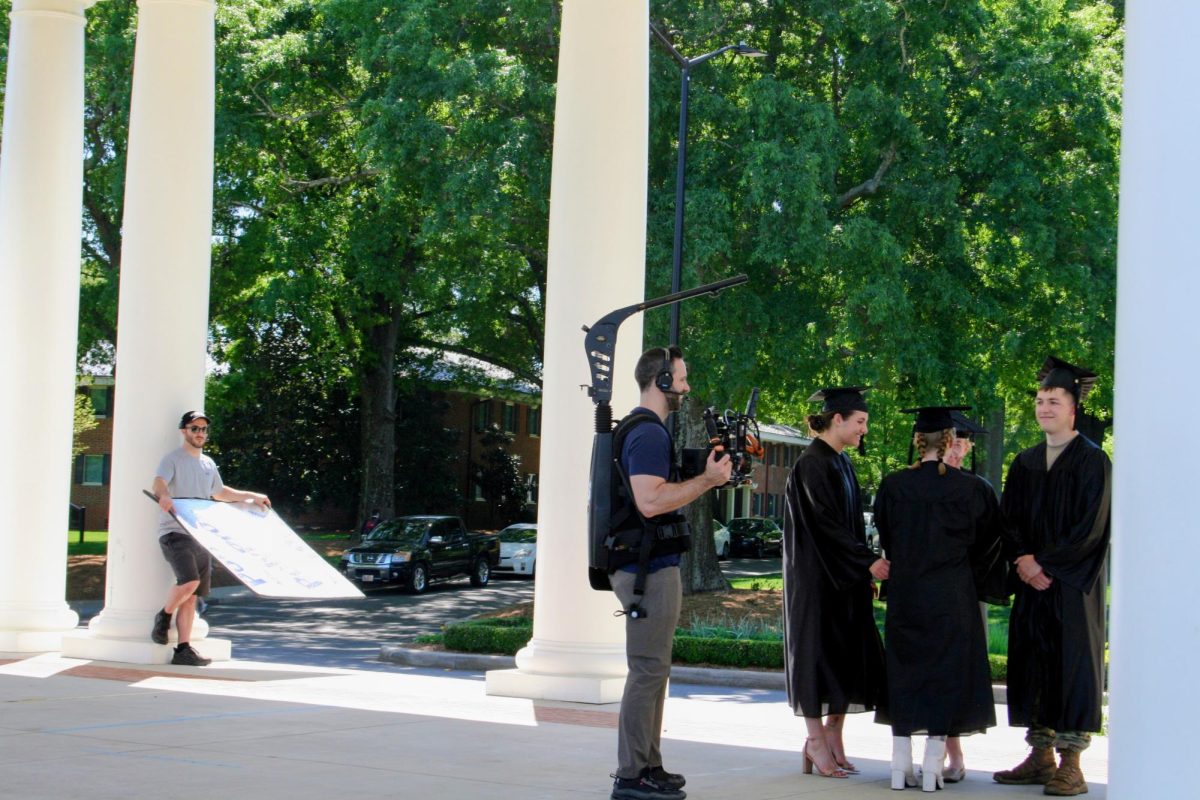Wofford Theatre to perform Waiting for Godot adaptation
Rather than let COVID-19 restrictions hinder a performance, the Theatre Department has been working all semester to put on the French play, Waiting for Godot.Written by Samuel Beckett, the play follows the extended existentialist conversations of two main characters, as they wait for the arrival of a mysterious man named Godot.
Daniel Day, Associate Professor of Theatre, is this year’s director. He has been working with his students all semester in order to create a performance unique to Wofford College.
Day said, “Our production of Waiting for Godot is as much an adaptation as it is a traditional version of Beckett’s text. For example, the three main characters, Gogo, Didi, and Pozzo are played by women in our production rather than by men.”
To further emphasize this gender swap, they also changed the script’s pronouns to assert their all-female cast. Also, the characters will be portrayed as twenty-somethings, in contrast to the original script that depicts men in their sixties.
“This show is really about humanity and human connection, and the way that we live our lives and there’s no reason why women can’t be included in that because we are humans.” said Joanna Burgess ‘22, who plays Didi.
Day and the cast have also made other creative modifications to the play. Wofford Theatre has created entirely new surroundings for Gogo and Didi’s conversations. According to Burgess, “there were a lot of choices made in terms of the set and costumes.”
“Our version takes place very intentionally in 2020, and we’ve departed from Beckett’s original setting. Instead Beckett’s ‘country road with a tree and a low mound’ as scenic elements, our adaptation is set in an urban environment featuring a huge heap of plastic garbage and the collapsed ruins of a skyscraper. Our costumes are contemporary and our performance text has been cut and adapted in an effort to engage, challenge, and perhaps even provoke our Wofford audience,” Day said.
The cast has also had to make adjustments to a normal rehearsal in order to conform to the CDC’s guidelines. However, Waiting for Godot, according to the cast, allows for a great deal of social distancing due to its short cast list and emphasis on thought-provoking dialogue.
“The only thing that’s really changed is that we can’t be close to each other,” Burgess said.
According to Day, the Wofford Theatre’s changes to the play include integrating today’s COVID-19 practices into the characters’ behavior:
“Waiting for Godot is about, among other things, how human beings contend with adversity and cope with crises. By incorporating practices like social distancing and the use of disinfectants into the action of the performance, I hope we’re contributing some additional humor and poignancy to the struggles of Beckett’s characters,” Day said.
Although the Wofford production is specifically an adaptation of Waiting for Godot, with the exception of changing pronouns, Beckett’s original text is preserved for this production. Even though it was written in the 40’s, its themes remain relevant in today’s climate.
“Given all the problems and potential disasters besetting our society and the planet right now—including extreme divisiveness and competing notions of truth and truthfulness—I’d say that the fragmentary, non-linear, and inconclusive nature of the play is a pretty accurate representation of our current reality,” Day said.
“It’s fun but it wears you out,” Rahman said. “It’s a lot of back and forth, a lot of existential dread, a lot of thinking about death, and thinking about things you don’t want to think about, we confront four nights a week.
Even if we’ve decided to confront life and say, ‘Okay there really is no point to anything that I’m doing,’ and yet we still decide to go on and still make funny bits and have friends and continue to just go,” Burgess said.
Audrey Vail ‘21, who plays Gogo, said, “It’s very heavy on the mind. There’s a lot of thinking behind everything that was written by Samuel Beckett and everything that the characters, in turn, must say. They aren’t always easy things to think about, so I’ve found myself needing to take small breaks from the content of the show to return to myself and not think myself into a whole about existence and life and death, patterns and cycles in life. It has been especially fruitful, however, to be forced to think about those things and answer questions about myself.”
When watching the play, Burgess encourages the audience to “embrace the absurdism.”
“It [Waiting for Godot] means to me that we must move forward. We must move on- not sit in moments waiting for something that’s never coming. I needed that reminder, as do many others,” Vail said.
Day explained how the Wofford community can watch the show:
“Tickets to Waiting for Godot will be free, though the admission is limited to Wofford students, faculty, and staff only. Only 40 seats will be available per night, and audience members will need to check in at the box office to receive admission stickers that will allow them entrance into the theatre. Wofford community members will need to present their IDs in order to be admitted to the production. Stickers will be distributed on a first-come, first-served basis, starting at 7 p.m. each evening. The show runs Nov. 5, 6 and 7 and 11, 12, 13 and 14. All performances start at 8:00.”





